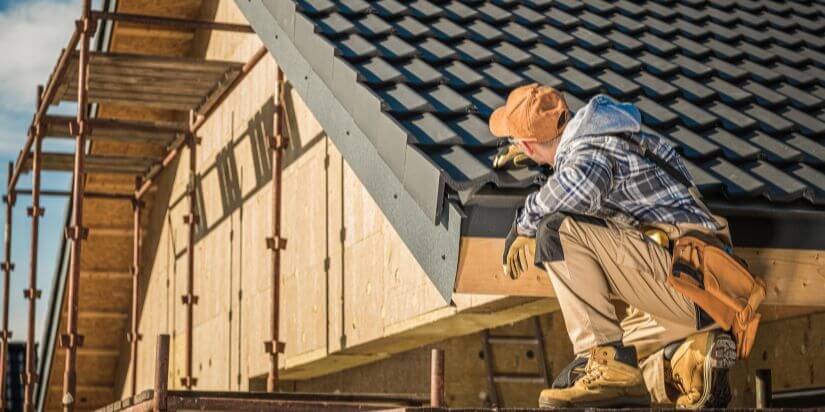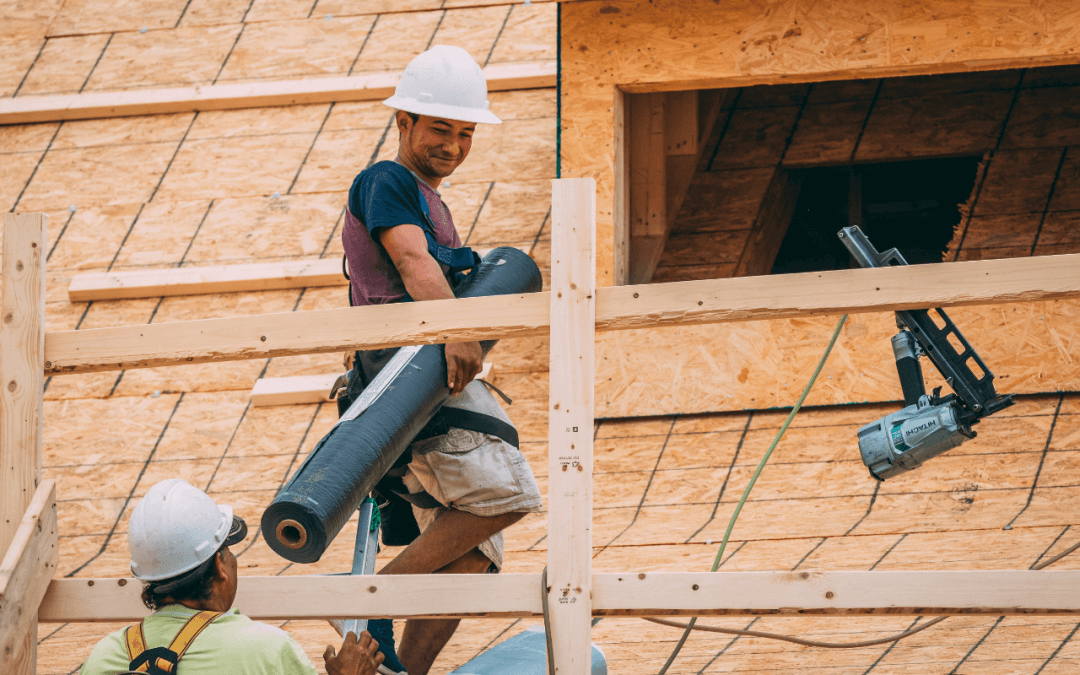Best Underlayment for Tile Roof in Florida
Oct 17, 2022Knowing the best underlayment for tile roof in Florida is a very important step when it comes to doing your own roofing. With proper maintenance and installation, tile roofs can last more than 100 years. They are Florida’s most durable roofing system. The underlayment is what will ensure your roof lasts the longest.
A tile roof’s underlayment must be strong enough to hold the weight of multiple tiles. Roofing.co uses a strong underlayment that protects your home from the elements to ensure your tile roof will last a lifetime.

What Is Tile Roof Underlayment?
If you are looking for the best underlayment for tile roof in Florida, you are probably somewhat concerned with the roof’s ability to stay leak-free. The underlayment membrane is applied between the tiles and the roof sheathing to protect your roof from water damage.
A tile roof is water-repellent by nature, but it doesn’t provide a watertight barrier as it isn’t sealed at every corner when it is laid. To protect against water, a roofing underlayment is required.
Best Tile Roof Underlayment
To ensure your tile roof’s durability and longevity, the underlayment should be at least equal to the tiles in quality. There are three types of tile roof underlayment: asphalt-saturated feel, rubberized asphalt, and synthetic underlayment. Below is a list of all three.
Asphalt-Saturated Felt
Asphalt-saturated felt papers are a popular type of underlayment for tile roofs. It’s low-cost and easy to install. It is a mixture of cellulose, asphalt, and polyester that has been soaked in waterproofing agents. There are two thicknesses to choose from 30-pound or 15-pound. However, the popular choice for roofers is the 30-pound felt.
It’s thicker and more rigid than 15-pound felt. This makes it more resistant to damage during roof installation and can protect your roof better from the elements such as hail, snow, wind, rain, or hail. Asphalt-saturated felt is water-resistant and cost-effective for many homeowners.

Non-Bitumen Synthetic Underlayment
Non-bitumen synthetic underlayment is made from either polypropylene or polyethylene material. It has many amazing features that make it an ideal underlayment for your tile roof. This underlayment is a replacement for felt. The synthetic underlayment is water resistant because it has a high asphalt saturation. Additionally, the fiberglass addition makes it more stable and heat resistant. The synthetic underlayment of high quality has scrim reinforcement which provides slip resistance even in wet conditions. This underlayment can be applied to the entire roof deck.
Synthetic underlayment also has other benefits:
- The roof is lighter and thinner than other underlayments, which makes it less heavy.
- It is easy to install.
- High winds and foot traffic can cause tears to be more severe.
- Anti-fungal and wrinkle-free.
- It lasts longer and degrades slower than other roofing materials.
- High resistance to UV damage. Can be left outside for up to six months, depending on the manufacturer’s recommendations.
- Sometimes, synthetic underlayment is used in conjunction with waterproof products.
Rubberized Asphalt Underlayment
Although it is more costly than the other options, this underlayment may provide better waterproofing. The adhesive is usually on one side and protected by a membrane during installation. This backing is what makes rubberized underlayment self-adhesive and creates a waterproof seal between the roof deck and the underlayment.
These underlayments are rubber-like and can seal around staples or nails thanks to their rubber-like properties. Rubberized underlayments can withstand heat up to 250 degrees F without causing adhesive degradation, making them perfect for Florida homes. Rubberized underlayments also have other benefits:
- They are weather-resistant and non-skid thanks to the polyester/polyethylene bonded to their upper surfaces.
- For improved moisture resistance, they have a polymer coating bonded to the weathered surface.
- Fiberglass reinforced.
Cost to Replace Underlayment
In the sunny state of Florida, the average cost to replace roof underlayment ranges from $800 to $1,200, according to national averages. Typically, homeowners in the region pay around $900 when replacing the underlayment on a 2,000-square-foot roof alongside replacing the roofing material.
For smaller-scale projects in Florida, such as a roofing repair involving the replacement of underlayment on a 300-square-foot area, the cost can be as low as $170. Conversely, larger-scale undertakings like removing clay tiles from a 3,000-square-foot roof, replacing the underlayment, and reinstalling the tiles can lead to a higher cost of approximately $9,000.
Florida Roofing Underlayment Requirements
The Florida Building Code (FBC) specifies the following requirements for roofing underlayment in Florida:
- Type of underlayment: The underlayment must be either felt or synthetic. Felt underlayment must be 30# or equivalent (ASTM D 226 Type II or ASTM D4869 Types III and IV). Synthetic underlayment must meet the performance requirements specified in the FBC.
- The number of layers: Two layers of felt or synthetic underlayment are required.
- Lap joints: Felt underlayment must be lapped 4 inches, and end laps must be 6 inches and offset by 6 feet. Synthetic underlayment must be lapped 6 inches, and end laps must be 12 inches and offset by 12 feet.
- Fastening: Felt underlayment must be fastened with 1-1/2″ roofing nails spaced 6 inches in center. Synthetic underlayment must be fastened with 1-1/2″ roofing nails spaced 8 inches in the center.
In addition to the FBC requirements, the Florida Department of Insurance (FLDOI) also has some additional requirements for roofing underlayment. These requirements include:
- Self-adhering underlayment: If the self-adhering underlayment is used, it must be applied over all roof deck joints and at least 4 inches wide.
- Flashing: Underlayment must be applied over all flashing.

Call the Roofing Professionals from Roofing.co
Florida can be extremely hot. If you’re a Florida resident, you already know this. You need an underlayment that is strong enough to withstand the elements and not get damaged. To install the underlayment, you will need to have a qualified, licensed, and experienced roofer. Roofing Co can help you choose the right underlayment for your tile roof, and will also assist with installation. Contact us today for a free estimate!
Services We Offer
Roofing co. can install any roof with great pride and care, no matter what style or type you prefer.
- Roof Replacement
- Roof Repair
- Cost-Effective Roof Installation
- Roof Inspection
Roofing Co roofing system:
At Roofing co. we understand that roofing services can be a significant investment, which is why we offer competitive pricing and financing options to help make our services more accessible to our customers. Contact us today!

